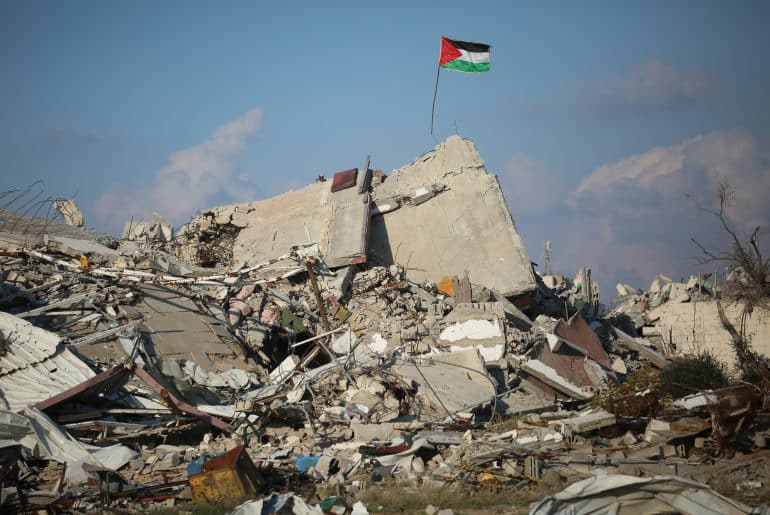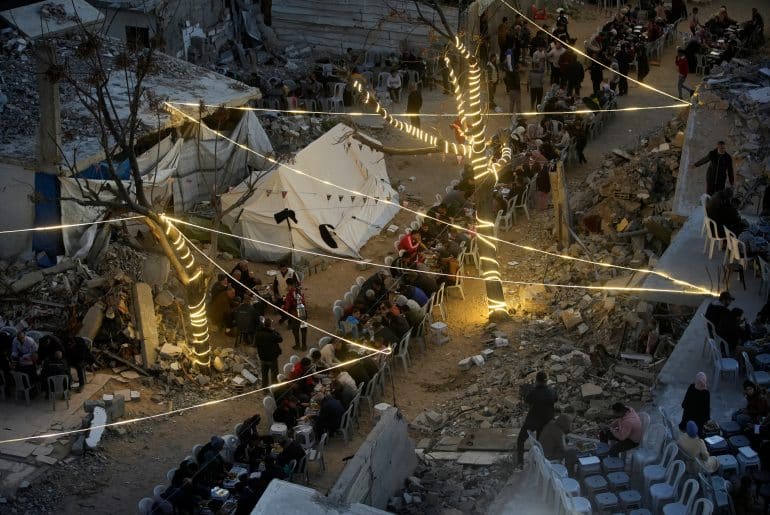Haidar Eid was raised in Gaza City after his parents were violently expelled from their home village of Zarnouqa in 1948. In 2019, a conversation emerges between Haidar and Neta Golan, an Israeli anti-Zionist comrade, as she shares with him footage from his hometown which he is denied access to. In 2023, Haidar, his wife, and their daughters become the second and third generation to be forced from their home as Israel continues its genocidal war in Palestine.
The short documentary Returning to Zarnouqa depicts a vision that remains as relevant as ever: The time for Return is now.
The Nakba Generation was supposed to die, while we are supposed to forget. But we will never tire of asking the question: What is the Palestinian cause if not the right of return of the refugees, those inside and outside of Palestine?
Displacement is held in the fire of our fight, and return is held in the heart of our rights. I am the second generation, and my daughters the third, who have been displaced by Israel’s long-walk to genocide which it has been waging since 1948, the year my parents were expelled from their home village of Zarnouqa.
We, native Palestinians, were viewed by hegemonic Zionism as an obstacle to realizing the Zionist dream by our mere existence and presence. Zionism has meant redemption for some Jews, at the expense of the native Palestinians who were dispossessed, and relegated to what Fredric Jameson, calls, the political unconscious. Thus, from the Palestinian perspective, the crystallization of the Zionist dream has meant dispossession and exile.
We have been robbed of our land, deprived of our identity and history; even our future has been stolen. The Zionist response to these atrocities is that the Palestinians should not have existed in the first place. Zionism wants us to be forgotten forever. However, massacres, humiliation, dispossession, defeat, expropriation, invasion, denial of existence, and Genocide, has not led to our disappearance.
Despite the intention to make us invisible, we refuse to give up the belief that the day will come when we will live in a secular, democratic nation that has been transformed into a state for all of its citizens regardless of race, religion or ethnicity. It is only through democratic means, and de-Zionizing the state of Israel that a society built on justice and equality, rather than ethnic-supremacy can be realized.
What we have on our side is our right. And we have conscientious people around the world and within these borders who see the potential of a state for all of its citizens, not just those born to Jewish mothers.
When my parents were displaced from their village of Zarnouqa in May of 1948, they didn’t think they would never be allowed to return. My mother, 19, with a baby in her arms who she would lose two years later; my father, burdened with what turned out to be a permanent displacement before them, fled from their paradise of Zarnouqa. In December of 2023, I too was forcefully expelled from my home of Rimal in Gaza City, with my two girls and my ancestral burden of dispossession, during Israel’s genocidal assault on Gaza.
Now is the time for Return.
Haidar Eid
Haidar Eid is Associate Professor of Postcolonial and Postmodern Literature at Gaza’s al-Aqsa University. He has written widely on the Arab-Israeli conflict, including articles published at Znet, Electronic Intifada, Palestine Chronicle, and Open Democracy. He has published papers on cultural Studies and literature in a number of journals, including Nebula, Journal of American Studies in Turkey, Cultural Logic, and the Journal of Comparative Literature.




The “genocidal assault ” was perpetrated by Hamas on Oct.7, an event the writer somehow doesn’t mention.